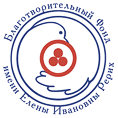ICR is Associated Member with INTO

INTO is a network of National Trusts and similar organisations from around the world, united by their common interest in the conservation and enjoyment of our shared heritage – built and natural, tangible and intangible.
This new organisation brings people together to exchange information, develop and promote best practice, and work to effect change. INTO’s mission is to “promote the conservation and enhancement of the heritage of all nations for the benefit of the people of the world and future generations”.
INTO offers a communications network that connects organisations around the world (website, e-bulletins, International Conference of National Trusts, workshops), an expert network and knowledge bank, capacity building support, training, strategies for collective advocacy, and a forum for advancing intercultural understanding and the development of civil society.
The National Trust movement
Towards the end of the nineteenth century, organisations were beginning to be formed across the world with the aim of conserving fast-disappearing natural and cultural heritage.
The Society of the Preservation of Norwegian Ancient Monuments (Fortidsminneforeningen) was established in 1844 by artists who "discovered" Norway's cultural heritage during academic excursions to rural districts and valleys, for example. The Trustees of Reservations in Massachusetts became the US’s first private nonprofit conservation organisation in 1890 and the National Trust of England, Wales and Northern Ireland was founded in 1895.
The National Trust movement has grown to include a range of countries from Australia, Barbados and Canada through Korea, Malta and the Netherlands to Taiwan, the United States and Zimbabwe.
Each organisation is different but they share similar goals, legal constitutions and structures, and for over 30 years have been coming together under the umbrella of the International Conference of National Trusts (ICNT) to share information and best practice, to develop solutions to common problems and to show solidarity with other members of the movement.
At the 10th ICNT in Edinburgh delegates agreed on the need to establish a global federation to coordinate activity between conferences and INTO was launched at the 12th ICNT in Delhi.
It has been almost a year since the Delhi Conference and in that time INTO has advanced from a loose confederation of like-minded organisations to a legally constituted, purposeful and well-positioned network.
Thanks to the hard work of INTO’s Executive Committee members, the Secretariat is now in place and delivering the first phase of our development strategy; the INTO website is live; and progress has been made on increasing membership numbers and services.
Why INTO is important now?
To date, international collaboration on heritage conservation has focused primarily on sites of universal value. This is important, but there is a critical need to better protect and preserve both tangible and intangible heritage of national, regional, and local significance, and especially to integrate heritage conservation into national and local programmes for sustainable development.
Heritage-focused NGOs within individual countries (National Trust and similar organisations) can play a key role – in partnership with national and local governments – in facilitating and promoting this type of heritage conservation.
The 21st century is a time when built and natural heritage all over the world is under increasing threat from environmental decay, neglect, and conflict. Against this background is a growing awareness and recognition of the value of collaborative international action. The National Trust approach is viewed by many as an important model to the charitable and voluntary organisations that have been established to combat these threats. And as established Trusts we have an opportunity, if not a duty, to collaborate with our sister organisations around the world.
INTO’s member organisations share a blessedly simple mission – to help people to value and protect their heritage. And without them our heritage would become irrelevant and disappear. National Trusts are an expression of civic engagement, which is particularly important in the emerging democracies where they have a role to play in nation building.
INTO emphasises what is special about the National Trust approach and helps build the brand – nationally and internationally – through the development and promotion of best conservation practice at global level.
Advocacy
There is a need for greater collaboration and institution-building to engage the public and private sectors in heritage conservation. INTO is committed to promoting the establishment and enhancement of National Trust and similar organisations world-wide to encourage best practices and policies to promote heritage conservation.
Influencing policy development is increasingly dependent on working in partnership and INTO promotes a collective approach to advocacy. Across the world National Trusts are leading the way in adapting to and mitigating against climate change – as well as political, social, cultural, scientific and economic change.
INTO can assist National Trusts with campaigning techniques at national level and is developing an international advocacy programme that will aim to put intangible and tangible heritage – both cultural and natural – at the heart of global policy making. INTO also seeks funding to support programmes from which its members can benefit.

